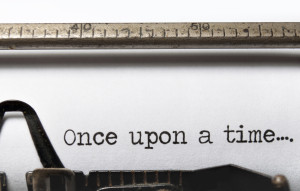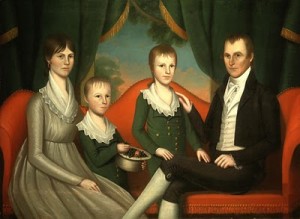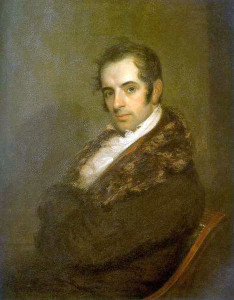 Have you ever wondered what it takes to write a great history book for a popular audience?
Have you ever wondered what it takes to write a great history book for a popular audience?
This year’s American Historical Association conference hosted several panels about writing history. I attended 3: “Historians, Journalists, and the Challenges of Getting It Right: The Art and Craft of the Obituary,” “Writing History for the Public,” and “Writing American History Outside the Academy.”
All of these panels contained helpful information, tips, and suggestions for historians who want to write for a general audience.
Today, I offer a recap of “Writing American History Outside of the Academy,” which provided advice on how historians can make their writing more enjoyable for a non-academic audience.
You can find my summaries of “The Art of the Obituary” and “Writing History for the Public” on John Fea’s blog “The Way of Improvement Leads Home.”
Biggest Takeaways: Historians need to learn the conventions of nuance and complex storytelling from novelists. As humanists, historians have a duty to portray the complexity of human life. Historians need decent writer websites.
Panel Summary
“Writing American History Outside of the Academy,” explored “the act of writing and how history gets done.” Unfortunately, bad weather limited the 5-person panel to chair Joseph Kip Kosek, Adam Goodheart, and Louisa Thomas; Megan Marshall e-mailed her comments, which Thomas read.
An historian, essayist, and journalist, Adam Goodheart writes for National Geographic, Outside, Smithsonian, The Atlantic, and The New York Times Magazine. He also wrote [amazon_link id="1400032199" target="_blank" container="" container_class="" ]1861: The Civil War Awakening[/amazon_link], “a gripping and original account of how the Civil War began.”
 Goodheart believes that historians should simplify their analysis, but embrace complexity in their storytelling when they write for a general audience.
Goodheart believes that historians should simplify their analysis, but embrace complexity in their storytelling when they write for a general audience.
Goodheart urged historians to read and study works of fiction. Novels often feel more life-like than history books because they present nuance and complexity. Historians could produce more life-like histories if they used these novelistic conventions.
Goodheart drove his point home with a quote from author Philip Roth: “As an artist the nuance is your task. Your task is not to simplify. Even should you choose to write in the simplest way, a la Hemingway, the task remains to impart the nuance, to elucidate the complication, to imply the contradiction. Not to erase the contradiction, not to deny the contradiction, but to see where, within the contradiction, lies the tormented human being.”
According to Goodheart, there is no reason a 300-page history book cannot show nuance and contradiction. Historians are humanists and humanists have a mission to show the world the complexities of human beings.
Finally, Goodheart asked the audience to be concise and not to get hung up on “simplification.” Historians already simplify; the historian’s focus on argument represents a form of simplification. Additionally, historians simplify history again when they choose which facts to leave out of their monographs.
Stranded in Boston by the“Blizzard of January 2014,” Megan Marshall e-mailed comments for the audience. Louisa Thomas read them.
Marshall believes that anyone can write history and her experience proves her point. Marshall is not a trained historian, but she has written 2 historical works, both biographies and the first, [amazon_link id="0618711694" target="_blank" container="" container_class="" ]The Peabody Sisters[/amazon_link], won several awards, including the 2005 Francis Parkman Prize for the best-written work of American history.
 Marshall also questioned the historian’s reliance on argument, which she feels limits them when they write. Instead of focusing on argument, Marshall wants historians to write more about the people, places, and times they admire. She would also like historians to write more biographies because the narrative art of the genre would teach historians how to write exciting, well-written history books.
Marshall also questioned the historian’s reliance on argument, which she feels limits them when they write. Instead of focusing on argument, Marshall wants historians to write more about the people, places, and times they admire. She would also like historians to write more biographies because the narrative art of the genre would teach historians how to write exciting, well-written history books.
Like Marshall, Louisa Thomas is not a trained historian. After completing her B.A. in English at Harvard, she worked as a fact checker for The New Yorker. Thomas credits this work with giving her the experience she needed to research and write her book, [amazon_link id="B007HW6AOE" target="_blank" container="" container_class="" ]Conscience: Two Soldiers, Two Pacifists, One Family—A Test of Will and Faith in World War I[/amazon_link].
Thomas reiterated the need for historians to study fiction. Historians need to give readers a reason to turn the page, something many fiction writers do well.
Thomas stated that good history starts with the impulse to be close to people of another time. Like historians, readers also want to get to know the people of the past. Historians need to understand and talk about human beings as they are—emotional, conflicted, and contradictory creatures—if they want to reach a large audience.
Audience Q & A
Questions from the audience encouraged Goodheart and Thomas to provide more practical information about publishing and how to write for a general audience.
The Q&A discussion fell into 3 categories: Writing, Publishing, and Marketing
Writing
• Historians need to write more about people than about their arguments. Historians can make arguments through their narratives without having to focus on a thesis statement.
• Footnotes: Thomas commented that academic historians use footnotes to highlight their sources. Trade authors use them as a place to present the historiography for those who wish to consult it.
• Goodheart suggested that historians approach writing as if they were foreign correspondents in a foreign past. This approach will help historians write for their readers and help them describe the “obvious” information that isn’t obvious to most readers.
Publishing
Should you publish with an academic or popular press?
• Thomas: If you are looking for an academic job, go with an academic press.
• Goodheart: Be strategic and go with the press that caters to the audience you wish to reach.
• Wendy Strothman (Literary Agent): If you are looking for a tenure-track job publish with a good university press. University presses are more forgiving when book sales are low; bad sales figures will haunt you when you publish with popular presses.
• Strothman advised the audience to make sure they keep the option to their film rights.
Marketing/Writer Platform
Looking for a Literary Agent?
- Strothman: Agents will Google search you so create or update your writer website. Your website should contain PDFs and links to your articles as agents want to see your sources and expertise.
Tips and Tricks for Marketing Your Book
- Be ready the moment your book comes out. Most live or die in the first few weeks after publication.
- Call in every favor and connection you have to get word out about your new book.
- Never say “No” to promotion. Go to the small bookstores and sell 15 copies.
- Consider investing in promoted Facebook posts or sponsored tweets.
- Be prepared to be depressed by book sales. Even if others review your work, you might not be happy with your sales numbers.
- Strothman: Tell agents how you will help them market your book, do not tell them about the market for your book. Also, you need a decent website.
 What Do You Think?
What Do You Think?
What do you think about the advice these authors offered?
Do you have tips, tricks, or stories to add?
Take my reader survey so I can better serve you with my content.
